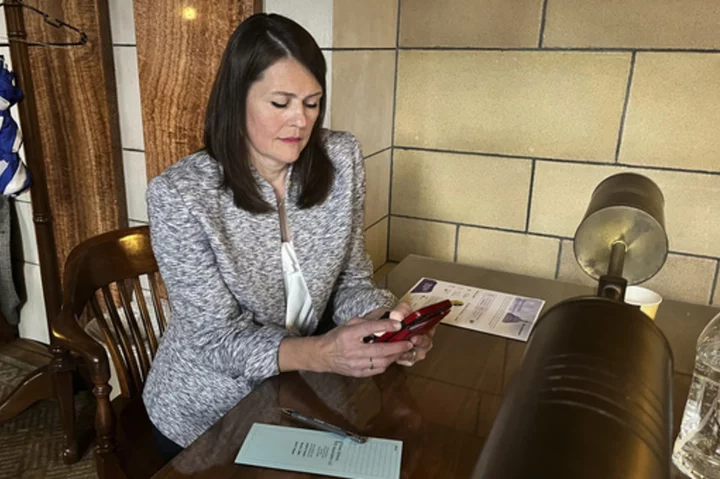
Lewis Hamilton and Carlos Sainz demoted after Austrian Grand Prix penalty chaos
Lewis Hamilton is among the drivers who have been demoted in position for the Austrian Grand Prix after a raft of time penalties were added some five hours after the chequered flag. Max Verstappen comfortably won his fifth race in a row, with Ferrari’s Charles Leclerc coming home second and Sergio Perez finishing third. While the podium remained unchanged, Sainz was given a 10-second time penalty – dropping him from fourth to sixth – while Hamilton was given the same punishment, shifting him down a place to P8. McLaren’s Lando Norris subsequently moves up to fourth and Fernando Alonso up a spot to fifth. Alpine’s Pierre Gasly also had 10 seconds added on to his final time, dropping him down to 10th from ninth, swapping spots with Aston Martin’s Lance Stroll. Esteban Ocon was given an astonishing 30-second time penalty post-race, with the Williams pairing of Alex Albon and Logan Sargeant given 10-second punishments. Finally, the AlphaTauri duo of Nyck de Vries and Yuki Tsunoda were punished with 15 and five seconds respectively. FINAL AUSTRIAN GRAND PRIX RACE CLASSIFICATION 1. Max Verstappen 2. Charles Leclerc 3. Sergio Perez 4. Lando Norris 5. Fernando Alonso 6. Carlos Sainz 7. George Russell 8. Lewis Hamilton 9. Lance Stroll 10. Pierre Gasly 11. Alex Albon 12. Zhou Guanyu 13. Logan Sargeant 14. Esteban Ocon 15. Valtteri Bottas 16. Oscar Piastri 17. Nyck De Vries 18. Kevin Magnussen 19. Yuki Tsunoda 20. Nico Hulkenberg It marked a chaotic and befuddling end to a weekend where nearly every driver was warned and punished for exceeding track limits, particularly at turns 9 and 10. In Sunday’s race, there were a vast total of 83 lap times deleted throughout the 71-lap grand prix. An Aston Martin appeal triggered the raft of penalties and positional changes. The FIA noted in their final assessment: "The Stewards very strongly recommend that a solution be found to the track limits situation at this circuit.” A gravel trap on the outside of the final corner – turn 10 – was recommended by the race director last year and now looks a likely addition at the Red Bull Ring in Spielberg. The track and event signed a new deal with F1 on Sunday, extending their partnership until 2030. Read More Toto Wolff plays down impact of ‘just please drive it’ remark to Lewis Hamilton Max Verstappen refuses to ponder title hat-trick despite another emphatic win Max Verstappen and Red Bull continue to dominate after triumph at Austrian Grand Prix F1 Austrian Grand Prix LIVE: Race latest updates and results from Red Bull Ring Lewis Hamilton: 18 months, 13 podiums and an elusive race victory Max Verstappen remains man to beat after only Austrian GP practice
2023-07-03 05:16

Razer BlackWidow V4 75% Review
The full-size Razer BlackWidow V4 Pro won our attention earlier this year with gorgeous RGB
2023-08-24 10:27

Nebraska lawmakers to debate attaching 12-week abortion ban to trans youth health care ban
Nebraska lawmakers are set to take up debate on a plan that would tack on a proposed 12-week abortion ban to a bill that would ban gender-affirming care in transgender minors
2023-05-17 00:28

Why So Many Latines Are Breaking Up With Their Parents
Giovanna “Gigi” Gonzalez hasn’t spoken with her mother for almost two years. After years of unresolved conflicts about money, entitlement, and boundaries, Gonzalez decided to go no-contact. The last straw: an incident where her mother attempted to physically assault her. Despite receiving pressure to rekindle her relationship with her mom from the family members Gonzalez is still in contact with, she believes severing ties has given her the peace and freedom to grow in her personal and professional lives.
2023-07-26 05:46

This golden statue was ridiculed when a local government erected it. Then gold prices skyrocketed
A rural South Korean county was mocked for spending more than $2 million to build a statue of bats made out of real gold. But with gold prices on the rise, the estimated value of the statue has skyrocketed, and now tourists are lining up to see it.
2023-05-11 11:27

A skin patch to treat peanut allergies? Study in toddlers shows promise
A new study finds an experimental skin patch shows promise to treat toddlers who are highly allergic to peanuts
2023-05-11 05:19

North Carolina governor to veto abortion limits, launching override showdown
North Carolina’s Democratic governor plans to veto legislation that would ban nearly all abortions after 12 weeks of pregnancy
2023-05-13 12:25

Apple Set to Issue Multiple Health Warnings for Upcoming AR Headset
Have anxiety or ADHD? It might not be a good idea to use Apple’s upcoming
2023-06-04 00:25

Father and son on Titanic tourist sub from influential Pakistan dynasty
The father and son aboard the missing Titanic tourist submersible hail from one of Pakistan's most prominent and wealthiest families, who are known for their...
2023-06-21 23:19

Russia and India vie for first moon landing at lunar south pole
Russia just launched its first mission to the moon in close to 50 years, firing
2023-08-12 18:57

Millennial Money: 5 ways to get kids excited about investing
If you’ve sat your kids down to discuss Roth IRAs and compound interest, you might have been going about things the wrong way
2023-11-07 21:49

Women still struggling with boys' club of Greek politics
As the credits rolled on Greek television's long-awaited election debate between the party leaders, one thing united them --...
2023-05-16 14:28
You Might Like...

Toxic? Britney tells of troubles in new memoir

We Asked ChatGPT For Skincare Advice

Pamela Anderson reveals why she plans to sell ‘all’ her old clothes – including iconic Baywatch swimsuit

Ketchup inflation hits your weekend barbeque

The best VPNs for unblocking Hulu

Get this plug-and-play 4K touchscreen monitor for under $300

'The Blackening' review: Tim Story’s Black horror comedy takes a slash out of the genre

Charge four devices at once with this charging station, now $60
